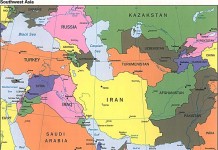Context
 As the Gaza crisis unfolds, the Arab world is also engulfed in the Arab Awakening and the ever widening War and Terror. Meanwhile, the global power tussles are also escalating in the region. While the American perception has deteriorated due to the campaign against extremists, the Russians have gained in places like Syria. Iraq and Egypt both have shown indications on moving closer to Russia, especially when they don’t get what they want from the West.
As the Gaza crisis unfolds, the Arab world is also engulfed in the Arab Awakening and the ever widening War and Terror. Meanwhile, the global power tussles are also escalating in the region. While the American perception has deteriorated due to the campaign against extremists, the Russians have gained in places like Syria. Iraq and Egypt both have shown indications on moving closer to Russia, especially when they don’t get what they want from the West.
The Gulf nations, especially Qatar and the Saudis, are caught in their own battle for supremacy in the region, and to establish their influence over one or the other Palestinian faction. While Qatar, along with Turkey and Iran, has economically supported Gaza and by default Hamas, Saudis and Israelis see this as detrimental to the two-state solution.
Ironically, there is synergy of interest between the regional Sunni Arab States and Israel. They both support Fatah over Hamas, the secular set up in Egypt, reversal of Iran’s regional resurgence and its endeavor towards acquiring nuclear weapons.
Differences also exist over the affairs of Syria and which opposition fighters to support there, the moderates or the AQ and IS linked extremists. Then there is the divergence over the future of Egypt, where Saudi Arabia went out of its way to back al-Sisi, who had earlier removed Muslim Brotherhood supported Mursi government. On the other hand, Qatar, Turkey and Iran, criticized the removal of Mursi from power. Among other matters, Mursi was attempting to develop better relations with Iran and that had greatly worried the Gulf States.
Analysis
As the Gaza crisis worsens, it is quickly becoming apparent that one of the major causalities of the changes in Egypt was its traditional role of playing a peacemaker between Hamas and Israel. With the crackdown on Muslim Brotherhood, al-Sisi seems to have lost this influence.
While Saudis and Turkey do not see eye-to-eye over the future of Gaza and Egypt, they coincide over how to handle the Syrian quagmire, where Iran is supporting the Assad government.
The evolving situation of Iraq has complicated and added pressures on the Saudis and on the positions of other Gulf States as well. On the one hand, they loathed the Iranian supported Nouri al-Maliki regime, but on the other hand they fear the IS onslaught, whose direction could easily change towards Arab states that are already reeling under the stress of Arab Awakening.
Respected Saudi journalist and editor-at-large of Saudi Gazette, Khaled Almaeena, wrote in Al Arabia News recently:
“The Arab masses see images of dead bodies of men, women and children. They observe the total disregard for the sanctity of places of worship and hospitals. They see orphanages being blown to bits. Above all they see the complete paralysis and helplessness of Arab governments which cannot even pressure their so-called friends in the West to ask Israel to stop this aggression.”
As reflected by the loss of Egyptian influence, if other state actors continue to fail towards playing a balanced approach, they too will start to loose relevance. Every time Israel launches aerial bombardments and ground operations and acts with impunity, the Arab and Gulf States appear more and more mute, leading to more loss of credibility while making peaceful settlement more elusive.



